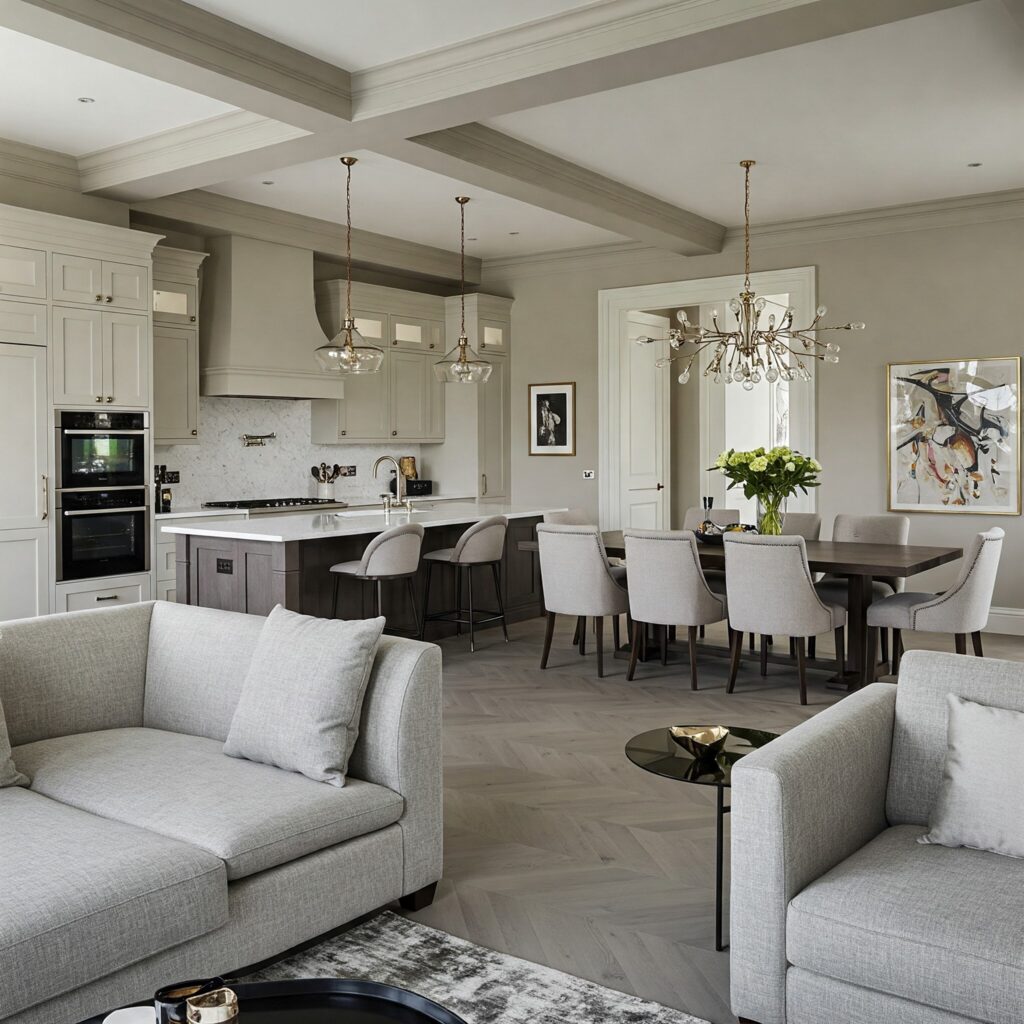Living along the Gulf Coast comes with many benefits—sunshine, coastal breezes, and access to the water. But it also comes with a fair share of challenges, especially for homeowners. Humidity, torrential rains, and long hurricane seasons can take a toll on traditional construction. Mold, mildew, and moisture damage are persistent problems in the region, leading to expensive repairs, health issues, and long-term structural concerns. That’s why more homeowners and builders are turning to ICF (Insulated Concrete Form) walls as a smarter alternative that stands up to moisture from the inside out.
ICF construction isn’t just about durability or energy efficiency—it’s also a powerful defense against the kind of damp-related damage that plagues many homes in the South. With its closed-cell insulation, solid concrete core, and moisture-resistant design, ICF offers critical protection where it’s needed most. This makes it an ideal choice for primary homes, vacation properties, and any building located in the humid Gulf Coast environment.
Why Moisture Matters So Much on the Gulf
Humidity on the Gulf Coast isn’t a seasonal problem—it’s constant. The air itself often holds a high moisture content, and that moisture naturally tries to move toward cooler indoor spaces. When it penetrates traditional walls—particularly wood-frame structures—it can lead to mold growth, rot, and even structural failure over time. Combine this with the region’s frequent tropical storms and flooding risks, and it’s clear that Gulf Coast homes need a moisture-resistant solution that can handle more than the occasional rainstorm.
Unlike standard materials that absorb or trap moisture, ICF walls are made to repel it. That’s because ICF blocks are built with expanded polystyrene (EPS) foam, which does not support mold growth or retain water. When paired with a poured concrete core, these walls become nearly impenetrable to water intrusion, making them far more resilient than traditional framing or uninsulated masonry.
How ICF Prevents Mold and Mildew
Mold and mildew thrive in environments where warmth, moisture, and organic material combine. Wood framing, gypsum board, and poor ventilation often provide the perfect storm for spores to grow. But ICF construction eliminates two key variables from that equation: moisture and organic material.
Because ICF walls don’t contain cellulose or other mold-sustaining materials, there’s nothing for mold to feed on. The walls are completely inorganic. Even in extreme humidity or after a storm, the EPS foam and concrete core do not harbor mold colonies like wood or drywall would. This makes ICF structures especially beneficial for homeowners with allergies, asthma, or mold sensitivities.
Additionally, the air-tight quality of ICF walls allows for greater control over indoor humidity and ventilation. HVAC systems work more efficiently in ICF homes, further reducing the risk of condensation buildup and the mold growth that can result from it.
ICF’s Resistance to Water Intrusion
In many cases, mold problems begin with small leaks or unnoticed water intrusion. Traditional construction leaves plenty of opportunity for moisture to creep into the wall cavity—from roof flashing issues to pipe leaks to simple condensation inside a poorly insulated structure. ICF construction, on the other hand, has no wall cavity in the traditional sense. The solid concrete core fills the space between the foam layers, leaving nowhere for water to accumulate or hide.
ICF walls also reduce the number of joints and weak points where water might find its way in. When combined with proper waterproofing and drainage systems, an ICF wall structure becomes a formidable barrier against both surface water and high groundwater—a major advantage in flood-prone Gulf Coast areas.
A Better Long-Term Investment for Humid Climates
One of the biggest concerns with traditional construction in humid climates is long-term maintenance. Replacing moldy drywall, tearing out water-damaged insulation, or dealing with wood rot behind the walls are all costly and disruptive. These problems can occur slowly over time and go unnoticed until major damage has already been done.
ICF helps eliminate those risks. Because the material doesn’t degrade, warp, or decay when exposed to moisture, homeowners enjoy a longer-lasting, lower-maintenance structure. This durability also pays off in resale value, as more buyers are becoming educated about mold risk and structural integrity in the Gulf Coast market.
Not only is ICF a good financial investment—it’s also an investment in health. Indoor air quality is often compromised by hidden mold, especially in climates where moisture is difficult to control. ICF’s moisture resistance helps maintain cleaner, healthier air by keeping hidden mold growth at bay. This makes a big difference for families, vacation renters, and anyone with respiratory concerns.
ICF for Basements, Foundations, and Above-Grade Walls
While some homeowners associate ICF primarily with basements or foundations, its benefits apply to the entire structure. From footings to the roofline, ICF can be used to create a complete moisture-resistant envelope. In coastal areas, where high water tables and flooding are a concern, this is especially valuable.
Even when used above grade, ICF adds significant protection. Driveways that slope toward the home, improperly sloped landscaping, or aging gutters can lead to pooling water near walls. Unlike wood-frame structures that absorb moisture from the bottom up, ICF walls hold strong—deflecting water and resisting internal damage.
A Smarter Choice for Gulf Coast Builders and Buyers
Whether you’re building a new home, remodeling, or advising clients on coastal construction options, the case for ICF in humid environments is stronger than ever. It’s not just about avoiding problems—it’s about building smarter from the start.
For homeowners, ICF means fewer headaches, better indoor air, and more peace of mind. For builders, it means delivering lasting value and performance in a market that demands both resilience and comfort.
From hurricanes to humidity, Gulf Coast homes face constant environmental stress. ICF construction offers a comprehensive defense system that works from the inside out—keeping mold, moisture, and mildew where they belong: outside.





